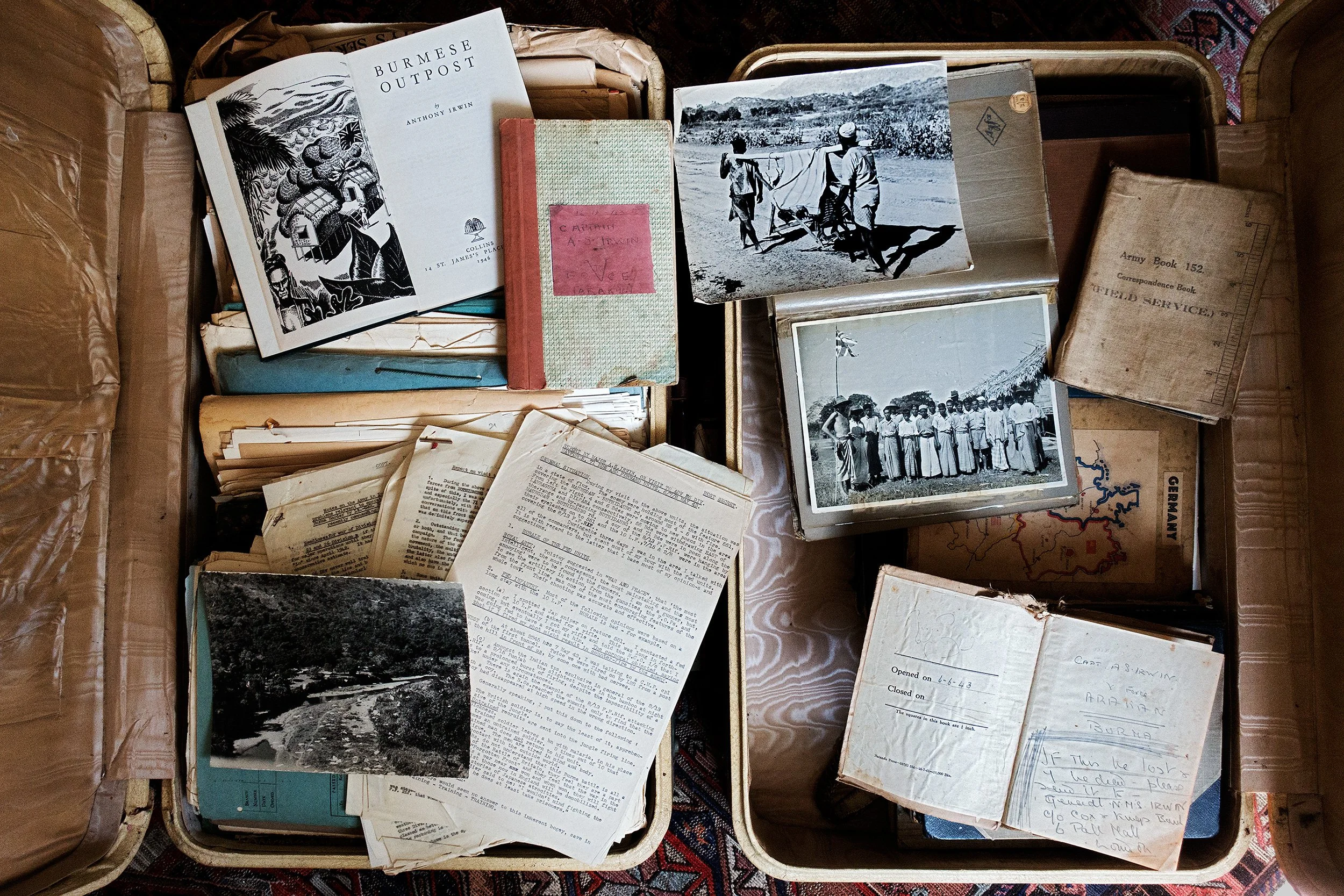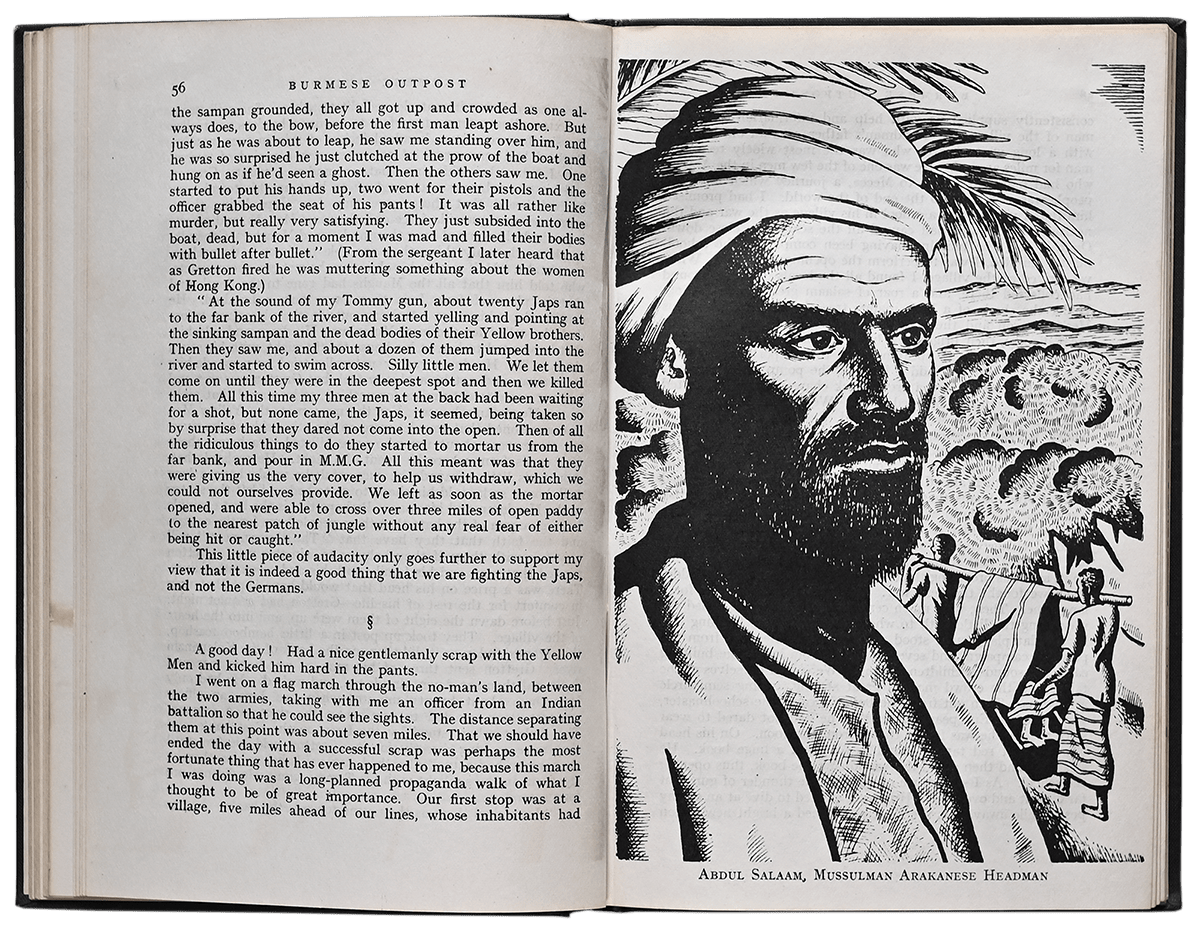
1943-44
In early April 1943, 24-year-old Captain Anthony S. Irwin arrived in Arakan. He had already served for the British in France and in Dakar. In 1943, he and a small group of British officers developed a network of trusted local operatives for “V” Force in Arakan. In North Arakan, Irwin worked primarily with the Rohingya community.
Irwin was based with “V” Force at guerrilla headquarters in Taung Bazar, Buthidaung. The network of Rohingya operatives and scouts included farmers, village Headmen, former police officers, government clerks, headmasters and teachers. Irwin had much respect for members of the Rohingya community. This respect was reflected in his diaries and later in his book, Burmese Outpost. The book was published in early 1945. It is one of only a few first hand accounts of the war in North Arakan during WWII and the contributions the Rohingya community made to British war efforts against the Japanese.

Personal photo album of Capt. Anthony Irwin labeled: ARAKAN 1943. Irwin (left) stands with a group of Rohingya, aka M/A Mussulman Arakanese, scouts at “V” Force guerrilla headquarters in Taung Bazar, Buthidaung, Arakan (1943). Included is Irwin’s handwritten remark on the back of the photograph.
"They have had to put up with two British withdrawls, and yet they have come back with us and fought, and died with and for us. I sometimes wonder if any other people in like circumstances can tell the same story of loyalty and patience as can these Mussulman Arakanese...Without these people we would have been blind and deaf. With them we have eyes and ears..."
Burmese Outpost, p.22, 25

